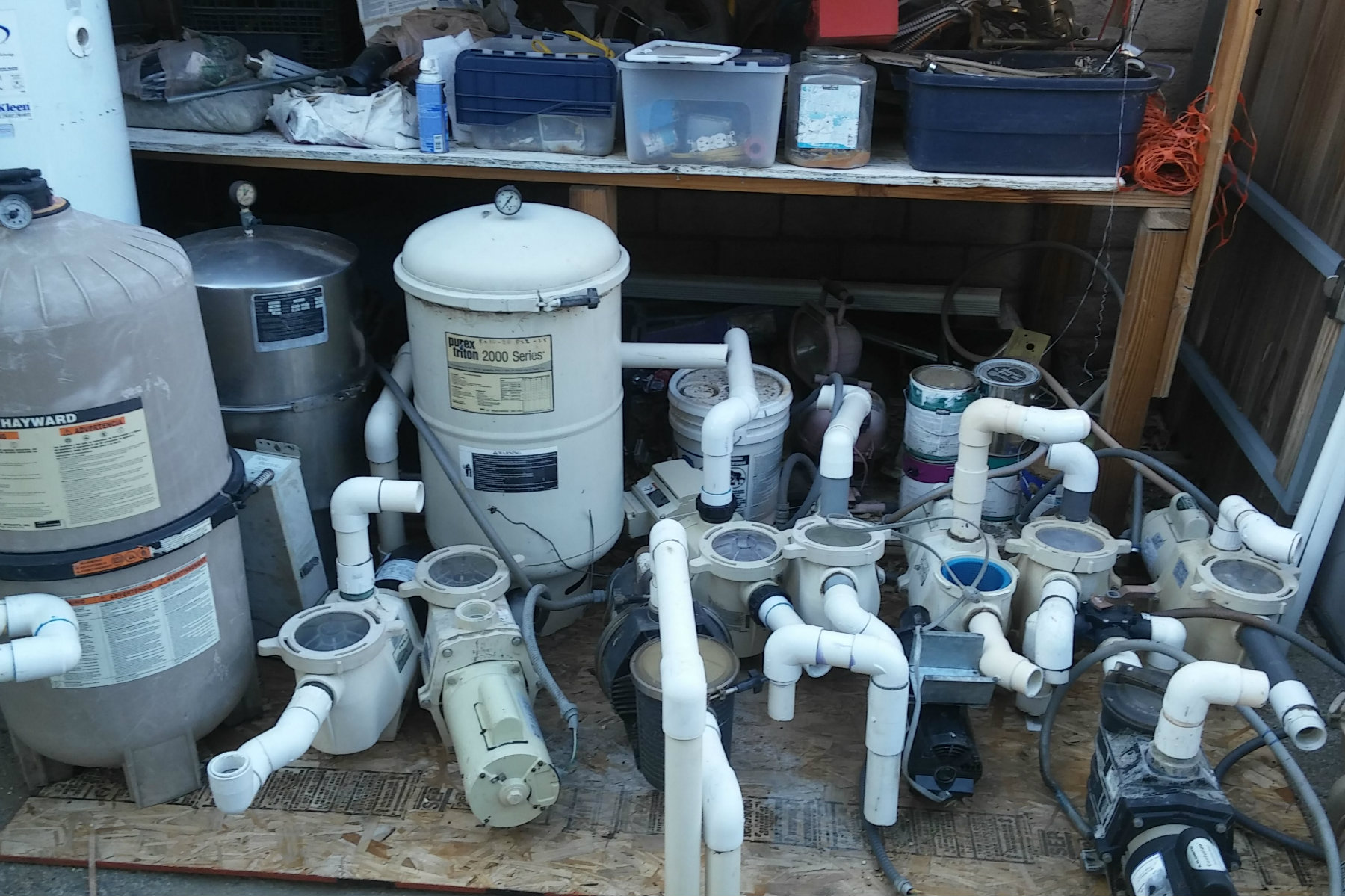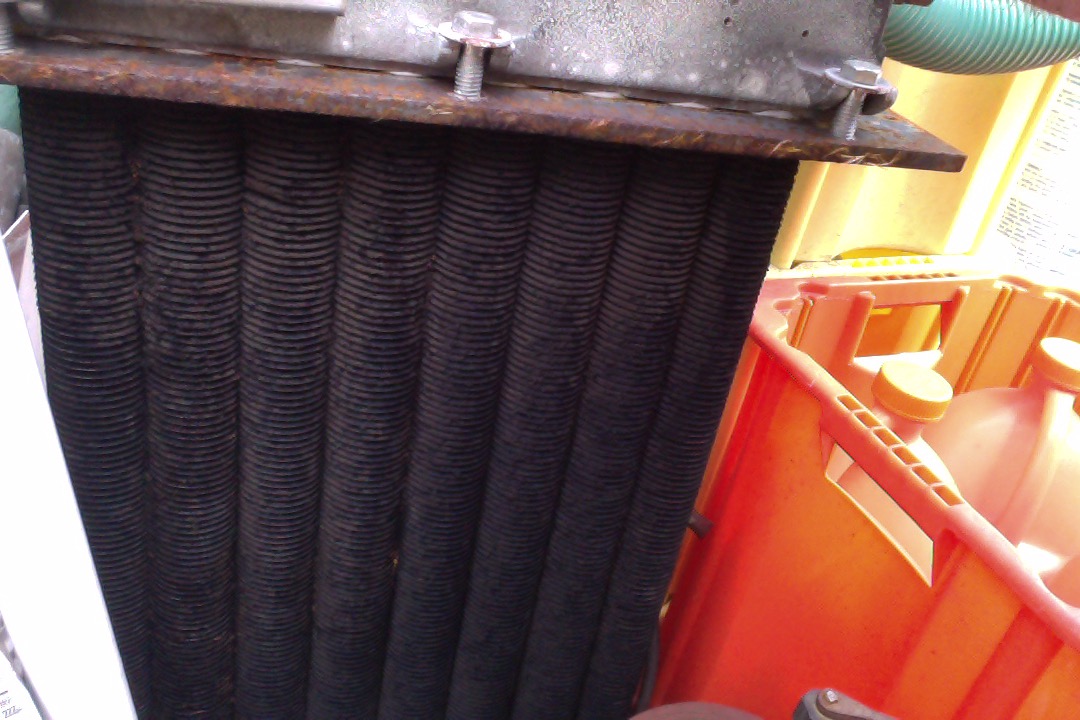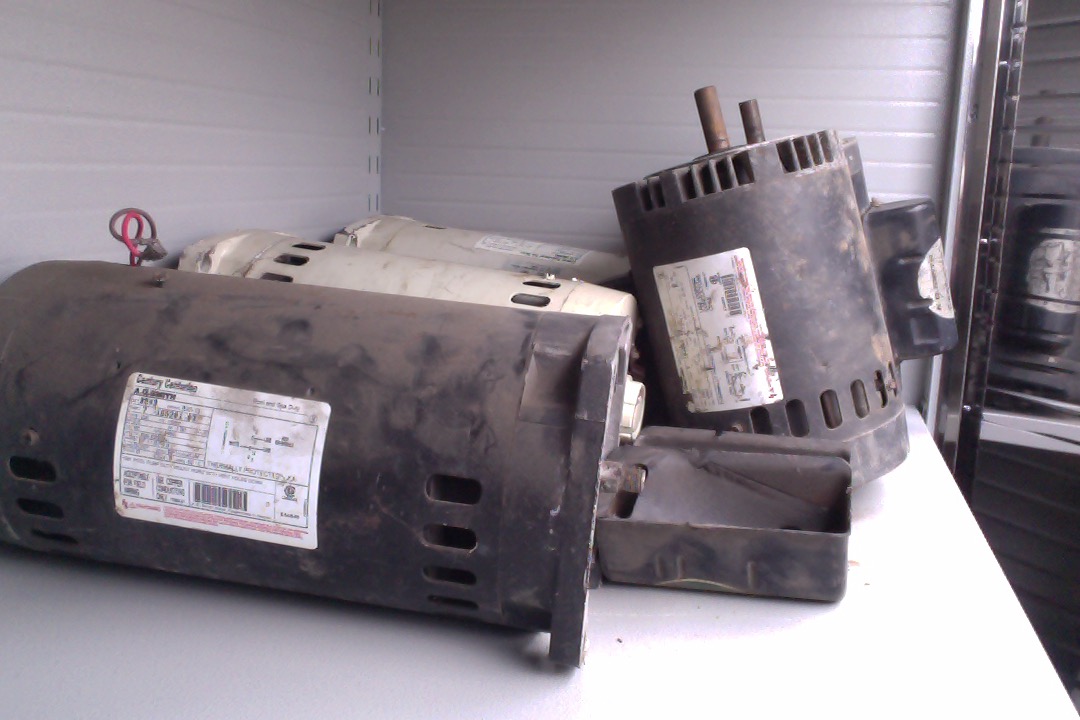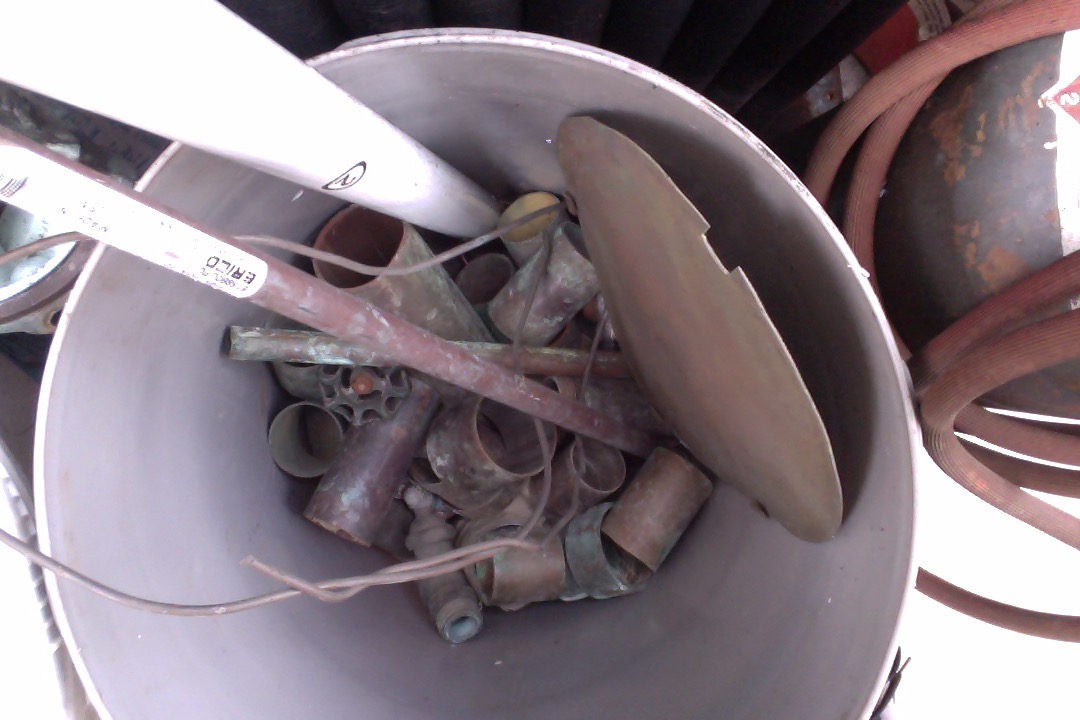If there’s such thing as a pump motor prospector, it’s Chris Johnson. As far as he’s concerned, discarded pool equipment is as good as gold.
Like any good prospector, Johnson knows precisely where to stake his claim. He tells of one major manufacturer that has its distributor dispose of all motors returned for warranty. No sense in letting all those parts go to waste, he says. So he retrieves them from the recycling yard, yielding significant revenues for his retail operation, which specializes in pre-owned pool appliances — including heaters and filters.
On an average visit, the owner of The Pool Place in Tucson, Ariz., will find five to 10 used pool motors. On a really good day, it’s a couple hundred.
And they’re not all defects. Nine out of 10 are perfectly good single-speeds that were swapped out for more efficient models, he says. The scrap yard has become littered with them in recent years as public utilities offer attractive incentives to upgrade.
Breathing new life into junked goods has become a lucrative sideline for Johnson, who founded his business four years ago on the principle that not all pool owners can afford the latest tech.
“When they got a blown motor and were hit with a $500 bill, they were asking for a second option,” Johnson says. “So, we decided to create a second option.”
Buying a reconditioned motor at The Pool Place saves homeowners hundreds of dollars. Plus, they get a 1-year warranty, which is what many manufacturers offer on new products.
Johnson acknowledges that the practice isn’t making him any friends among industry peers.
“Leslie’s and everyone else hates me to death,” he says.
But he can handle the criticism. “We’re out for our customers, not the industry.”
With the push for variable-speed pumps causing many single-speed models to end up in the trash heap, some technicians see dollar signs in all those discarded units. But while some see the refurbishment and sales of this equipment as giving customers what they want, others say that consumers are not getting what they need.
Those tricky titles
Johnson is far from the only one who salvages for profit. Many service pros at least dabble in dealing used equipment.
As for whether or not it’s strictly legal … well, that’s another matter.
State-mandated energy-efficiency standards govern what manufacturers can make, but there seems to be some confusion around what can and cannot be sold and installed.
For example, Arizona’s Title 44 specifically states that residential pool pumps of 1 horse-power or higher must have at least two speeds, and that it’s the installer’s responsibility to choose and install a compliant model whenever replacing a filter pump or filter motor.
Bob Nichols, Precision Pool Service, Glendora, Calif.
Heaters: Big money can be found inside the heater. Use a recipro…
Some retailers, such as Johnson, believe they’re within their legal rights because they aren’t installing noncompliant motors, only selling them.
That’s how some dealers in California interpret a similar law, Title 20. They’re under the impression that they’re free to sell such equipment, so long as the homeowner assumes the risks.
For service professionals, however, it’s not so cut and dried After all, they sell and install pumps and motors. Because of this, many have found themselves in a quandary when customers demand a used motor or pump. They can supply one, but can they legally install it?
These thorny situations often occur when dealing with home warranty companies, which are notoriously tight-fisted. Many times, the warranty provider will not pay for a new code-complaint model, opting instead for a reconditioned one.
Believing they’re in a legal dilemma, technicians will either turn the job down or hesitantly accept it hoping that it doesn’t come back to bite them.
They needn’t feel nervous.
A spokesperson for the California Energy Commission confirmed that used pumps and motors, even those that exceed 1hp, fall outside the scope of Title 20. So, to clarify: Replacing like for like is legal in the state of California.
The replace debate
But just because the practice is permissible doesn’t mean everyone has a favorable view of it.
Some professionals in the energy-conservation field believe replacing equipment with outmoded appliances isn’t doing homeowners or the environment any favors. However, they will grant certain exceptions.
Gary Fernstrom, one of the architects of California’s Title 20, doesn’t necessarily have a problem with a service tech repairing a homeowner’s motor or replacing it with a used motor in good working condition.
But he takes issue with the larger-scale outfits that systematically remanufacture motors and pumps that are indistinguishable from something fresh off the factory line.
Unlike single-polers who patch up and install motors, or retailers who sell used equipment directly to customers, these are more sophisticated operations that may leverage various sales channels to get their products into the market in a massive way. Just how many of these operations exist is unknown, but some service professionals suspect that they are supplying home-warranty companies.
In Fernstrom’s mind, these products are as good as new and should be regulated as such.
“I think the remanufacturers ought to be subject to the rule,” says Fernstrom, a consultant to Pacific Power & Gas, which serves northern and central California.
Likewise, some service technicians take a hardline stance against the practice. They believe that installing a rebuilt motor is only putting a Band-Aid on the situation. What customers really need is variable-speed technology, which will pay for itself in the long run by way of energy savings. To sell them anything less, these pros say, is doing a disservice.
The worst offenders, some techs allege, do not honor warranties, and will charge a premium for a refurbished replacement when the existing motor simply needs new bearings or another capacitor. And some just don’t know what they’re doing.
Dave Goulart has been called upon to fix so-called Frankenstein pumps. Mismatched pump-and-motor configurations, such as an almond-colored pump with black motor, suggest that “someone has done some fishy work,” says the owner of Aqua Hero, serving Livermore, Calif.
Goulart can’t blame the homeowner for wanting to save a buck. “But the customer ultimately loses the battle,” he says.
However, dealers of used goods contend that, if done right, it can be a viable alternative. They say that some clients are hovering just above the poverty line, and they want to keep their pools operating without breaking the bank.
Others are just being smart with their money.
As Johnson puts it, “I’ve been to trailer courts and I’ve been to mansions.”









